The host of our Round the Kitchen Table chat in Co Cavan is Elizabeth Ormiston and she is one busy woman. Between farming, helping out with grandchildren and her position as chair of Cavan IFA, Elizabeth has plenty to keep her busy.
On our visit, she was planning a canvassing schedule for Thomas Cooney who stood for election as deputy president of the IFA. She was looking forward to seeing a good share of the country during the campaign.

Sebana Moynagh and Elizabeth Ormiston.
Elizabeth grew up on a mixed farm in Co Meath. While she loved farming, she knew the home place would never be hers so that meant finding another career.
“I turned down a job with Bank of Ireland and worked in various office jobs until I married Philip and our eldest boys, Peter and PJ were born in 1982 and 1983.
“Philip inherited some land with cows and a 17,000-gallon milk quota from his parents and it was a Godsend.”
Making plans
As well as dairying they kept store cattle and bought-in weanlings. They used AI from Simmentals and Elizabeth was active in the Irish Simmental Cattle Society.
Philip was also working off-farm as a laboratory technician. More land was bought in 1988. “You wouldn’t do it now,” says Elizabeth.

With farm expansion, a growing family and lots of plans, disaster struck when Philip was diagnosed with a brain tumour in 1995. “Philip suffered for six years before passing away.
“I will never forget him having to go to the Mater every day for seven weeks when he was very ill. The two youngest were aged just four and two.
We’d been through so much that year, being depopulated was the last strawNor will I ever forget the Monday morning after the funeral. It was the longest day ever and the silence in this house was creepy.”
More worries
With bills and the bank to be paid, Elizabeth had to return to work and as if things couldn’t get worse later that year Elizabeth lost most of her herd to TB.
We’d been through so much that year, being depopulated was the last straw
“Philip died early in 2002 and we lost the herd with TB the following December. The trailers came during Christmas week. The children were very young and even their pet cow Betsy was taken.
“They didn’t sleep for two weeks. We’d been through so much that year, being depopulated was the last straw.”
Succession
Today the farm is owned by PJ Ormiston while Elizabeth retains 12ac and keeps an active interest in everything that’s going on.
She is passionate about succession planning and says many farmers leave it too late to give responsibility to the next generation.

PJ Ormiston, Ned Duffy and Paul Flanagan.
The main enterprise is finishing locally sourced beef heifers. While he loves farming, PJ says it won’t pay the bills and he works in industrial and commercial refrigeration to keep the place going.
“If there was money in farming I wouldn’t be one of the thousands on the road to Dublin every morning at 5am,” he says.
Combining farming and a busy off-farm business
Paul Flanagan has family roots in the townland of Leitrim as his first home was on his mother’s family farm. Like many farmers from the area, his dad worked a digger in Dublin while farming part time.
In 1971 Paul’s parents, Peter and Rosemary, bought the family farm and moved back to it in 1975 and they started dairying the same year.
Between building and buying quota they ended up milking 40 cows. In 1998 the family changed enterprise, selling the dairy herd and moving into sucklers with calves at foot.
“My father was busy with work and the sucklers were easier to manage.”

Paul followed in his father’s footsteps buying parcels of land as they became available.
“I don’t think I’d buy land anymore. I’d lease it long term instead. With Dublin and its commuting area so near that’s where my bread and butter work is. Farming is a hobby for me really.
“I have three sons and I can’t see any of them farming. I love farming and spend all day Sunday on the farm. It there’s a problem I can stay back and deal with it. But income-wise I wouldn’t be able to survive on what it brings in.”
Fourth generation dairy farmers
Dairy farmers Joan and Wilfred Moffitt farm just three miles from the border near the village of Blacklion.
The family are in dairying since the time of Wilfred’s grandfather back in 1945.
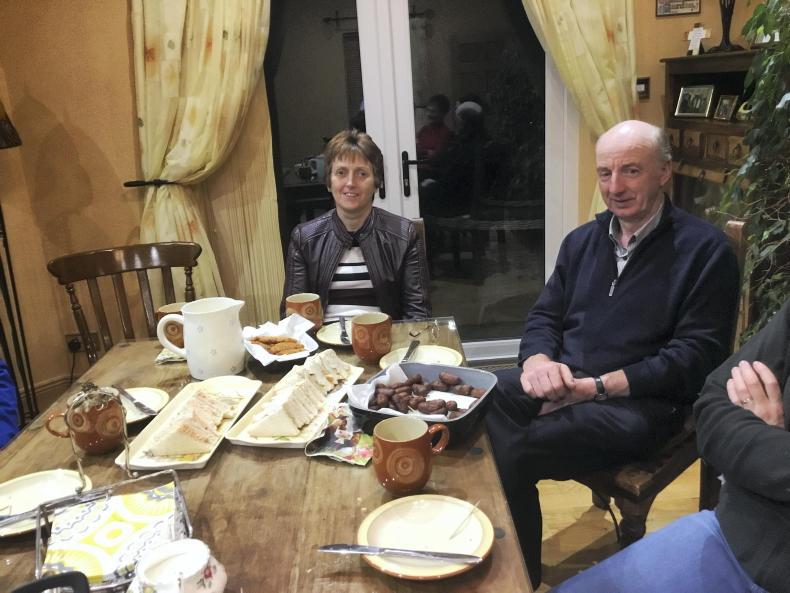
Joan and Wilfred Moffitt.
Over the years they have supplied Blacklion Co-op, then Kilasnett Co-op, followed by NCF and now Aurivo. As well as dairying, most of the calves are reared and finished on the farm.
“Forestry is the biggest threat around us,” says Wilfred. “It’s blanking out the countryside. Once forestry gets a hold, that’s the end of the primary school, the shop and homes. It kills communities.”
Emigration is another serious issue in their area says Joan.
“Once the young people go to college, they are gone and not coming back.
“I know of families where land was held back in the hope one of the children would come home but it never happened.
“Now those farms are being leased long term. People are not willing to sell out.”
The Moffitts have two daughters and one son and the next generation has an interest in farming.
Born to farm
“I was born to be a farmer,” says Sebana Moynagh. “From the time I was two-years-old I was out with my father checking the cattle. By nine, I was driving tractors.”
Sebana joined the Farm Apprenticeship Scheme and says it was tough work. “I recall working on a 150-cow dairy farm in Donegal where I was living in a caravan and the milk in the jug would be frozen over in the morning.”
The family farm was bought by Sebana’s grandfather in the 1930’s and has always operated as a livestock farm with sucklers the predominate enterprise.
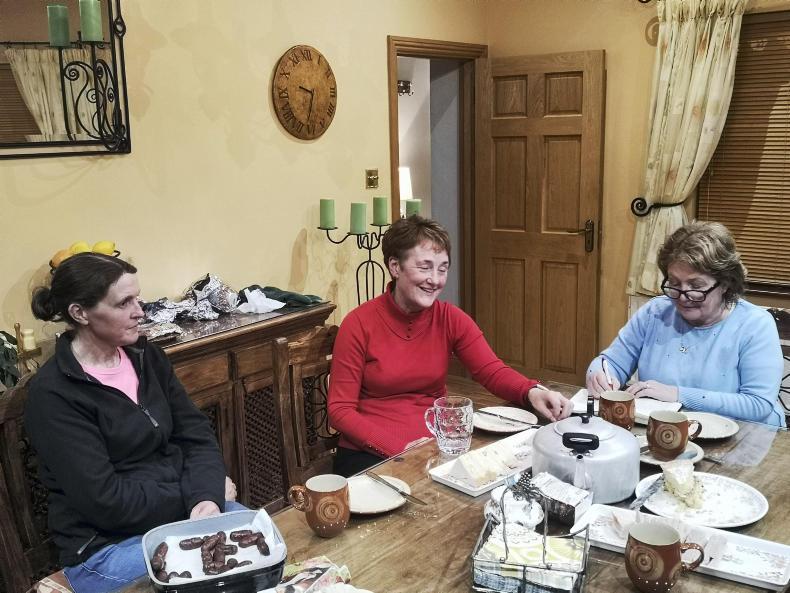
.
In 1982 they got into pedigree Charolais. “There was better money for them, especially for breeding heifers and following the bloodlines was really interesting.
“These days you’d worry about the future and where it will take the suckler herd.”
In 2013, the herd of 120 was depopulated because of TB.
“To say the least, it was traumatising. I had taken over the farm in 1998 and it had taken years to build up stock numbers.
“It was really hard on my father who had to watch the baby calves being taken away.”
Sebana bought in 30 replacements and gradually re-built the herd. “I love being a farmer. I couldn’t do anything else. However, that said, it’s my husband’s off-farm income that keeps us going.”
Busy road causes problems
Ned and Kathleen Duffy are dairy farmers and live in the townland of Edenburt, right beside the N3.
“Farming beside a busy road is hard going. There’s all the noise and then you can’t move anything. We have six acres on one side of the N3 and the rest of the farm is on the other side.
“The road is packed all the time and the only chance we have is on Sunday mornings when we can get a few weanlings across using a trailer.”
Ned’s parents Tom and Mary bought the 34ac drystock farm in 1944. Over the years extra land was rented and some was bought via the Land Commission.
Ned attended Virginia Technical School for three years before going farming.
Initially, Ned got into pigs and was a member of the Virginia pig weaner group which sold on the pigs to the Sheelin fattening group.
They then made the move into dairying and built up to 76 cows before quotas arrived.
Macra is a great outlet for young people
Ned believes in voluntary involvement and served as chair of Virginia Show. Their son Thomas is the current president of Macra na Feirme.
“Macra is a great outlet for young people, and I would encourage all young people both urban and rural to join,” he says.
Will red meat be wanted?
Looking to the future Wilfred Moffitt wonders if red meat will be wanted anymore. “As farmers, we are not getting our story across and we are on the defensive all the time.”
Elizabeth agrees saying Bord Bia received €40m last year. “But are we getting value for money? I think not.”
I got penalised for having no eyewash in my first aid kit. What’s that got to do with anything?
For Paul Flanagan, the promotions and inspections regimes are not working. “Bord Bia should have nothing to do with inspections.
“The criteria for inspections has gone too tight altogether and don’t talk to me about the paperwork.
“There’s such a long list and they always have to find something new. I got penalised for having no eyewash in my first aid kit. What’s that got to do with anything?” he asks.
Wilfred is unhappy about the number of vans distributing foreign chicken fillets and bacon and God knows what else to restaurants and shops.
Is dairying an option?
All agree that dairying is the only enterprise that delivers cashflow. However, the numbers who are full time are few enough.
We were the second last in the area to get out of dairying in 2002
“In our townland alone there were up to seven full-time dairy farmers a decade ago. Now there’s one.
“We were the second last in the area to get out of dairying in 2002. I don’t think dairying is coming back.
“The farms are too fragmented for the scale that’s now needed,” says Elizabeth Ormiston.
However, Sebana disagrees and says it is worth considering.
“We have a 60-acre platform and with zero grazing and a parlour it’s something to consider.”
Costs
While many farmers are part-time land rental is expensive enough with 11 month con acre making €240 an acre.
Small parcels of land for sale are also expensive with one recent parcel of eight acres making €18,000 an acre.
What farmers need is a decent CAP and a good solution for Mercosur and Brexit
All agree standard costs for fertilizer, meals, medicines and vets bills are out of control.
“The input costs are killing us. What we are getting just doesn’t cover them,” says Sebana. Wilfred reminds us that milk was making 36c/l in March 1988 and now it’s 29-30c/l.
“What farmers need is a decent CAP and a good solution for Mercosur and Brexit,” says Elizabeth.
Broadband is patchy and annoying for Ned Duffy who says it’s just 300 yards from his home.
WhatsApp and calf registration are the main uses. Both the Ormiston’s and Moffitts have a good service from Eir.
Coming home
Getting the next generation involved in farming is a challenge says Ned Duffy.
“When the economy went wallop so many emigrated and they are not returning, not even to full time dairying.
“I’d worry that in 10-15 years there will be no one to take over family farms. Farms like ours where we are milking 98 cows.
“However, that won’t keep two families so the young people will continue to whizz down the road to Dublin at 5am.”
Diversify
The Moffitts renovated an old house and now operate John Joe’s Self Catering Cottage.
Business comes through booking.com for the two-bedroom house with weddings, funerals and festivals providing most of the business.
They want more promotion of tourism in rural areas and believe that combined with farming it could make a significant addition to farm family incomes.
But the sector needs encouragement with good signage, social media and websites, they say.
The host of our Round the Kitchen Table chat in Co Cavan is Elizabeth Ormiston and she is one busy woman. Between farming, helping out with grandchildren and her position as chair of Cavan IFA, Elizabeth has plenty to keep her busy.
On our visit, she was planning a canvassing schedule for Thomas Cooney who stood for election as deputy president of the IFA. She was looking forward to seeing a good share of the country during the campaign.

Sebana Moynagh and Elizabeth Ormiston.
Elizabeth grew up on a mixed farm in Co Meath. While she loved farming, she knew the home place would never be hers so that meant finding another career.
“I turned down a job with Bank of Ireland and worked in various office jobs until I married Philip and our eldest boys, Peter and PJ were born in 1982 and 1983.
“Philip inherited some land with cows and a 17,000-gallon milk quota from his parents and it was a Godsend.”
Making plans
As well as dairying they kept store cattle and bought-in weanlings. They used AI from Simmentals and Elizabeth was active in the Irish Simmental Cattle Society.
Philip was also working off-farm as a laboratory technician. More land was bought in 1988. “You wouldn’t do it now,” says Elizabeth.

With farm expansion, a growing family and lots of plans, disaster struck when Philip was diagnosed with a brain tumour in 1995. “Philip suffered for six years before passing away.
“I will never forget him having to go to the Mater every day for seven weeks when he was very ill. The two youngest were aged just four and two.
We’d been through so much that year, being depopulated was the last strawNor will I ever forget the Monday morning after the funeral. It was the longest day ever and the silence in this house was creepy.”
More worries
With bills and the bank to be paid, Elizabeth had to return to work and as if things couldn’t get worse later that year Elizabeth lost most of her herd to TB.
We’d been through so much that year, being depopulated was the last straw
“Philip died early in 2002 and we lost the herd with TB the following December. The trailers came during Christmas week. The children were very young and even their pet cow Betsy was taken.
“They didn’t sleep for two weeks. We’d been through so much that year, being depopulated was the last straw.”
Succession
Today the farm is owned by PJ Ormiston while Elizabeth retains 12ac and keeps an active interest in everything that’s going on.
She is passionate about succession planning and says many farmers leave it too late to give responsibility to the next generation.

PJ Ormiston, Ned Duffy and Paul Flanagan.
The main enterprise is finishing locally sourced beef heifers. While he loves farming, PJ says it won’t pay the bills and he works in industrial and commercial refrigeration to keep the place going.
“If there was money in farming I wouldn’t be one of the thousands on the road to Dublin every morning at 5am,” he says.
Combining farming and a busy off-farm business
Paul Flanagan has family roots in the townland of Leitrim as his first home was on his mother’s family farm. Like many farmers from the area, his dad worked a digger in Dublin while farming part time.
In 1971 Paul’s parents, Peter and Rosemary, bought the family farm and moved back to it in 1975 and they started dairying the same year.
Between building and buying quota they ended up milking 40 cows. In 1998 the family changed enterprise, selling the dairy herd and moving into sucklers with calves at foot.
“My father was busy with work and the sucklers were easier to manage.”

Paul followed in his father’s footsteps buying parcels of land as they became available.
“I don’t think I’d buy land anymore. I’d lease it long term instead. With Dublin and its commuting area so near that’s where my bread and butter work is. Farming is a hobby for me really.
“I have three sons and I can’t see any of them farming. I love farming and spend all day Sunday on the farm. It there’s a problem I can stay back and deal with it. But income-wise I wouldn’t be able to survive on what it brings in.”
Fourth generation dairy farmers
Dairy farmers Joan and Wilfred Moffitt farm just three miles from the border near the village of Blacklion.
The family are in dairying since the time of Wilfred’s grandfather back in 1945.

Joan and Wilfred Moffitt.
Over the years they have supplied Blacklion Co-op, then Kilasnett Co-op, followed by NCF and now Aurivo. As well as dairying, most of the calves are reared and finished on the farm.
“Forestry is the biggest threat around us,” says Wilfred. “It’s blanking out the countryside. Once forestry gets a hold, that’s the end of the primary school, the shop and homes. It kills communities.”
Emigration is another serious issue in their area says Joan.
“Once the young people go to college, they are gone and not coming back.
“I know of families where land was held back in the hope one of the children would come home but it never happened.
“Now those farms are being leased long term. People are not willing to sell out.”
The Moffitts have two daughters and one son and the next generation has an interest in farming.
Born to farm
“I was born to be a farmer,” says Sebana Moynagh. “From the time I was two-years-old I was out with my father checking the cattle. By nine, I was driving tractors.”
Sebana joined the Farm Apprenticeship Scheme and says it was tough work. “I recall working on a 150-cow dairy farm in Donegal where I was living in a caravan and the milk in the jug would be frozen over in the morning.”
The family farm was bought by Sebana’s grandfather in the 1930’s and has always operated as a livestock farm with sucklers the predominate enterprise.

.
In 1982 they got into pedigree Charolais. “There was better money for them, especially for breeding heifers and following the bloodlines was really interesting.
“These days you’d worry about the future and where it will take the suckler herd.”
In 2013, the herd of 120 was depopulated because of TB.
“To say the least, it was traumatising. I had taken over the farm in 1998 and it had taken years to build up stock numbers.
“It was really hard on my father who had to watch the baby calves being taken away.”
Sebana bought in 30 replacements and gradually re-built the herd. “I love being a farmer. I couldn’t do anything else. However, that said, it’s my husband’s off-farm income that keeps us going.”
Busy road causes problems
Ned and Kathleen Duffy are dairy farmers and live in the townland of Edenburt, right beside the N3.
“Farming beside a busy road is hard going. There’s all the noise and then you can’t move anything. We have six acres on one side of the N3 and the rest of the farm is on the other side.
“The road is packed all the time and the only chance we have is on Sunday mornings when we can get a few weanlings across using a trailer.”
Ned’s parents Tom and Mary bought the 34ac drystock farm in 1944. Over the years extra land was rented and some was bought via the Land Commission.
Ned attended Virginia Technical School for three years before going farming.
Initially, Ned got into pigs and was a member of the Virginia pig weaner group which sold on the pigs to the Sheelin fattening group.
They then made the move into dairying and built up to 76 cows before quotas arrived.
Macra is a great outlet for young people
Ned believes in voluntary involvement and served as chair of Virginia Show. Their son Thomas is the current president of Macra na Feirme.
“Macra is a great outlet for young people, and I would encourage all young people both urban and rural to join,” he says.
Will red meat be wanted?
Looking to the future Wilfred Moffitt wonders if red meat will be wanted anymore. “As farmers, we are not getting our story across and we are on the defensive all the time.”
Elizabeth agrees saying Bord Bia received €40m last year. “But are we getting value for money? I think not.”
I got penalised for having no eyewash in my first aid kit. What’s that got to do with anything?
For Paul Flanagan, the promotions and inspections regimes are not working. “Bord Bia should have nothing to do with inspections.
“The criteria for inspections has gone too tight altogether and don’t talk to me about the paperwork.
“There’s such a long list and they always have to find something new. I got penalised for having no eyewash in my first aid kit. What’s that got to do with anything?” he asks.
Wilfred is unhappy about the number of vans distributing foreign chicken fillets and bacon and God knows what else to restaurants and shops.
Is dairying an option?
All agree that dairying is the only enterprise that delivers cashflow. However, the numbers who are full time are few enough.
We were the second last in the area to get out of dairying in 2002
“In our townland alone there were up to seven full-time dairy farmers a decade ago. Now there’s one.
“We were the second last in the area to get out of dairying in 2002. I don’t think dairying is coming back.
“The farms are too fragmented for the scale that’s now needed,” says Elizabeth Ormiston.
However, Sebana disagrees and says it is worth considering.
“We have a 60-acre platform and with zero grazing and a parlour it’s something to consider.”
Costs
While many farmers are part-time land rental is expensive enough with 11 month con acre making €240 an acre.
Small parcels of land for sale are also expensive with one recent parcel of eight acres making €18,000 an acre.
What farmers need is a decent CAP and a good solution for Mercosur and Brexit
All agree standard costs for fertilizer, meals, medicines and vets bills are out of control.
“The input costs are killing us. What we are getting just doesn’t cover them,” says Sebana. Wilfred reminds us that milk was making 36c/l in March 1988 and now it’s 29-30c/l.
“What farmers need is a decent CAP and a good solution for Mercosur and Brexit,” says Elizabeth.
Broadband is patchy and annoying for Ned Duffy who says it’s just 300 yards from his home.
WhatsApp and calf registration are the main uses. Both the Ormiston’s and Moffitts have a good service from Eir.
Coming home
Getting the next generation involved in farming is a challenge says Ned Duffy.
“When the economy went wallop so many emigrated and they are not returning, not even to full time dairying.
“I’d worry that in 10-15 years there will be no one to take over family farms. Farms like ours where we are milking 98 cows.
“However, that won’t keep two families so the young people will continue to whizz down the road to Dublin at 5am.”
Diversify
The Moffitts renovated an old house and now operate John Joe’s Self Catering Cottage.
Business comes through booking.com for the two-bedroom house with weddings, funerals and festivals providing most of the business.
They want more promotion of tourism in rural areas and believe that combined with farming it could make a significant addition to farm family incomes.
But the sector needs encouragement with good signage, social media and websites, they say.









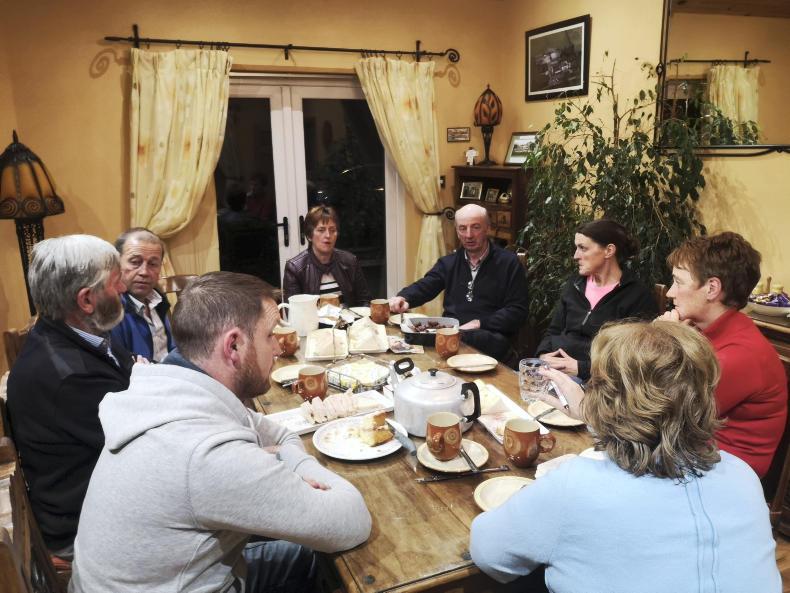
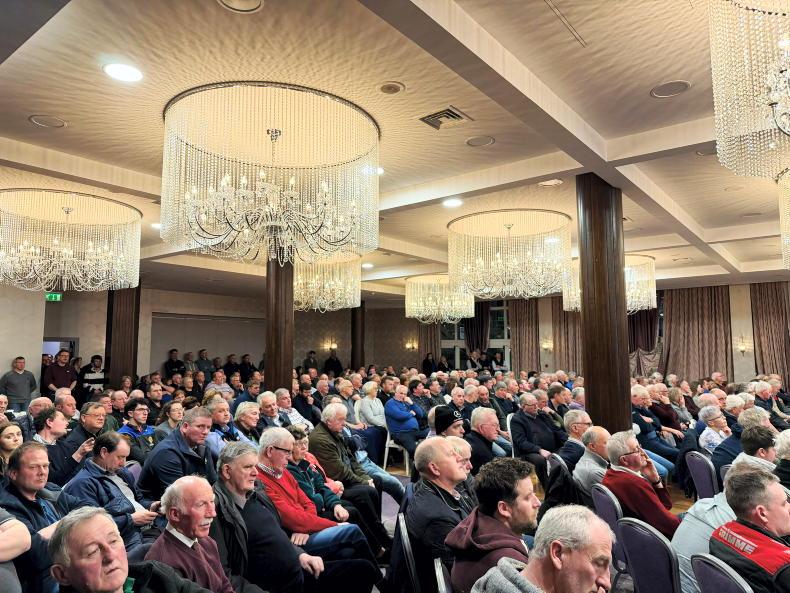

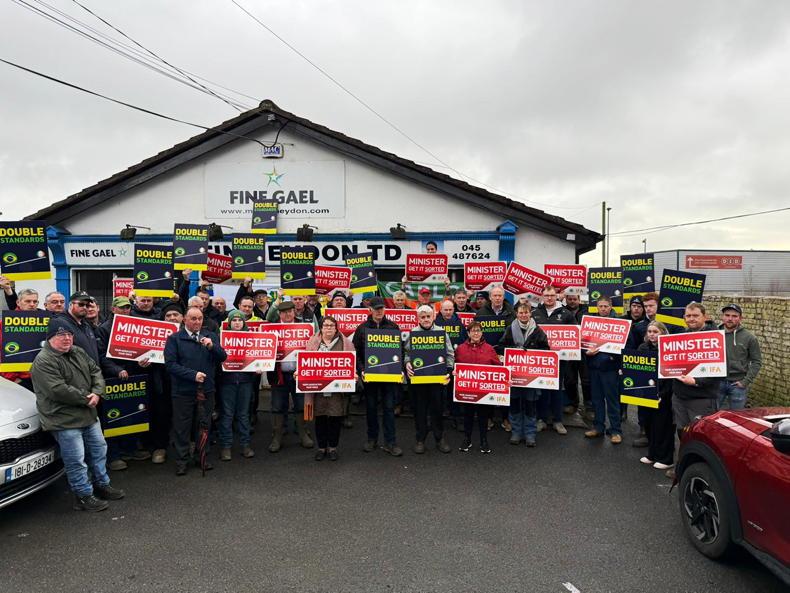
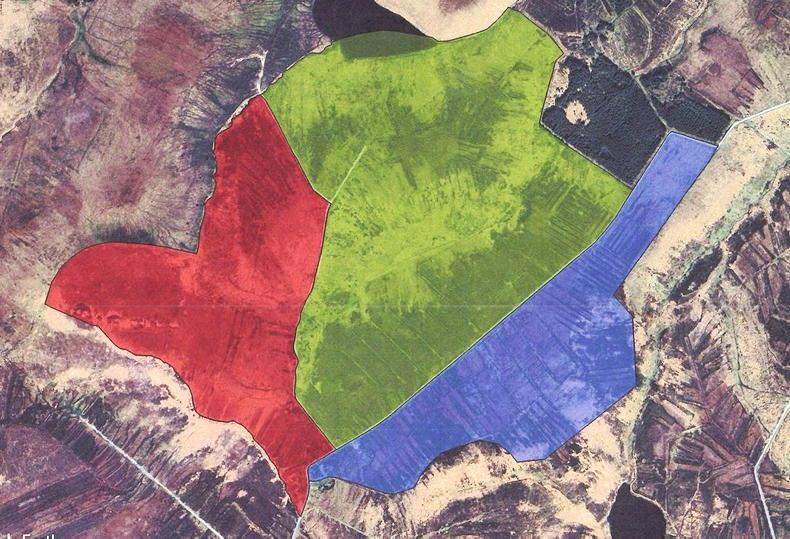

SHARING OPTIONS